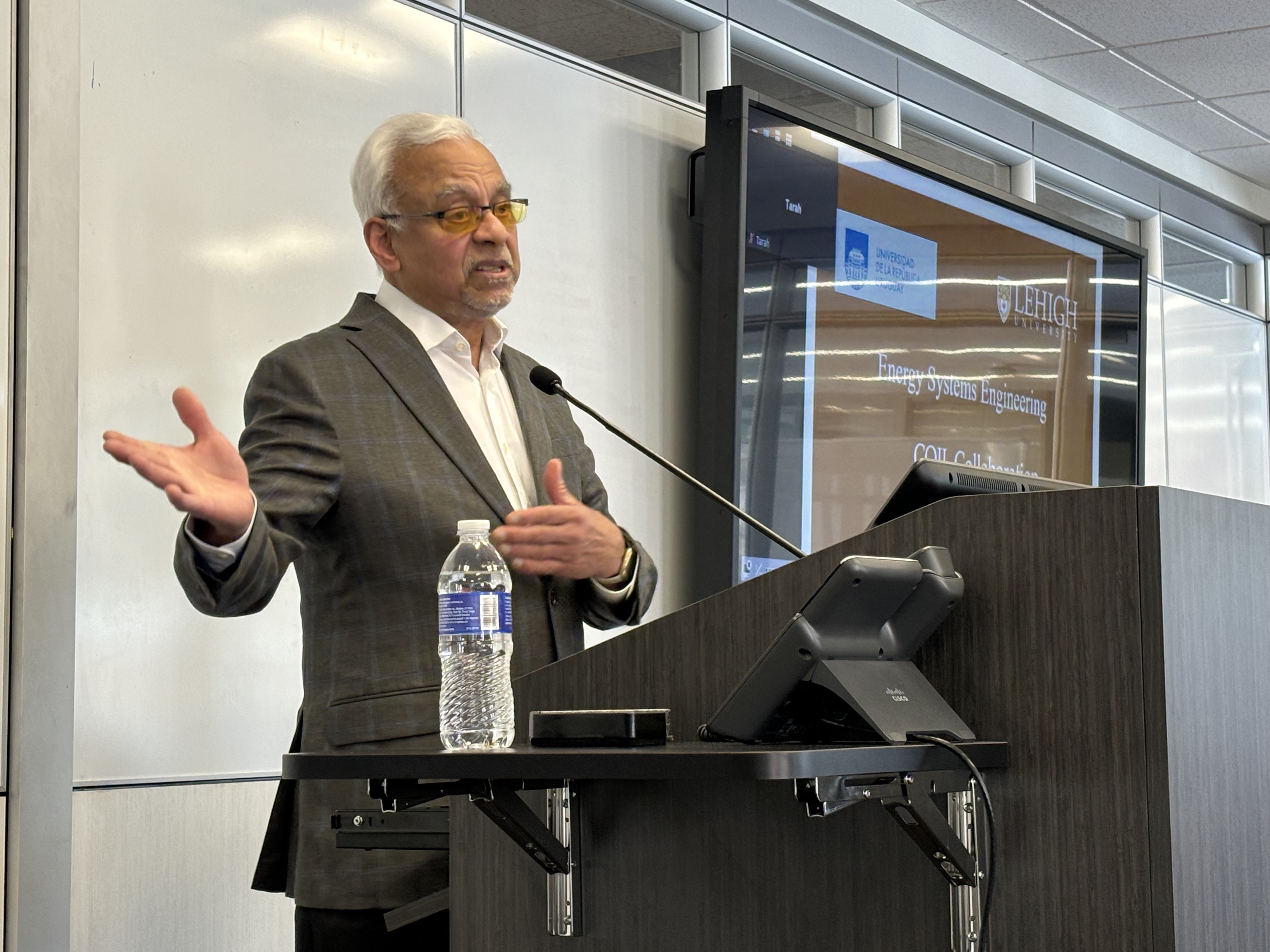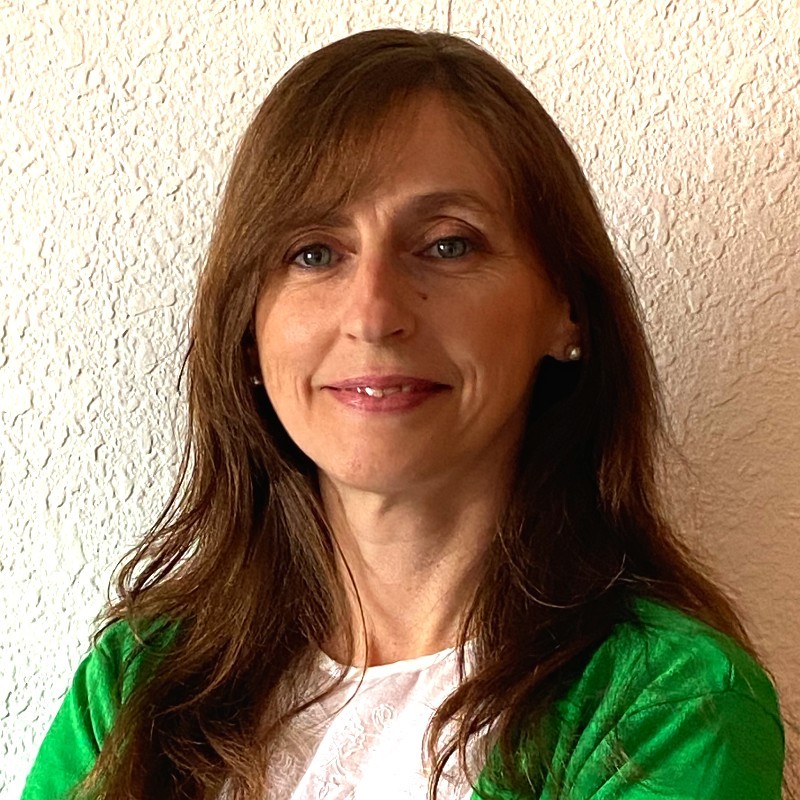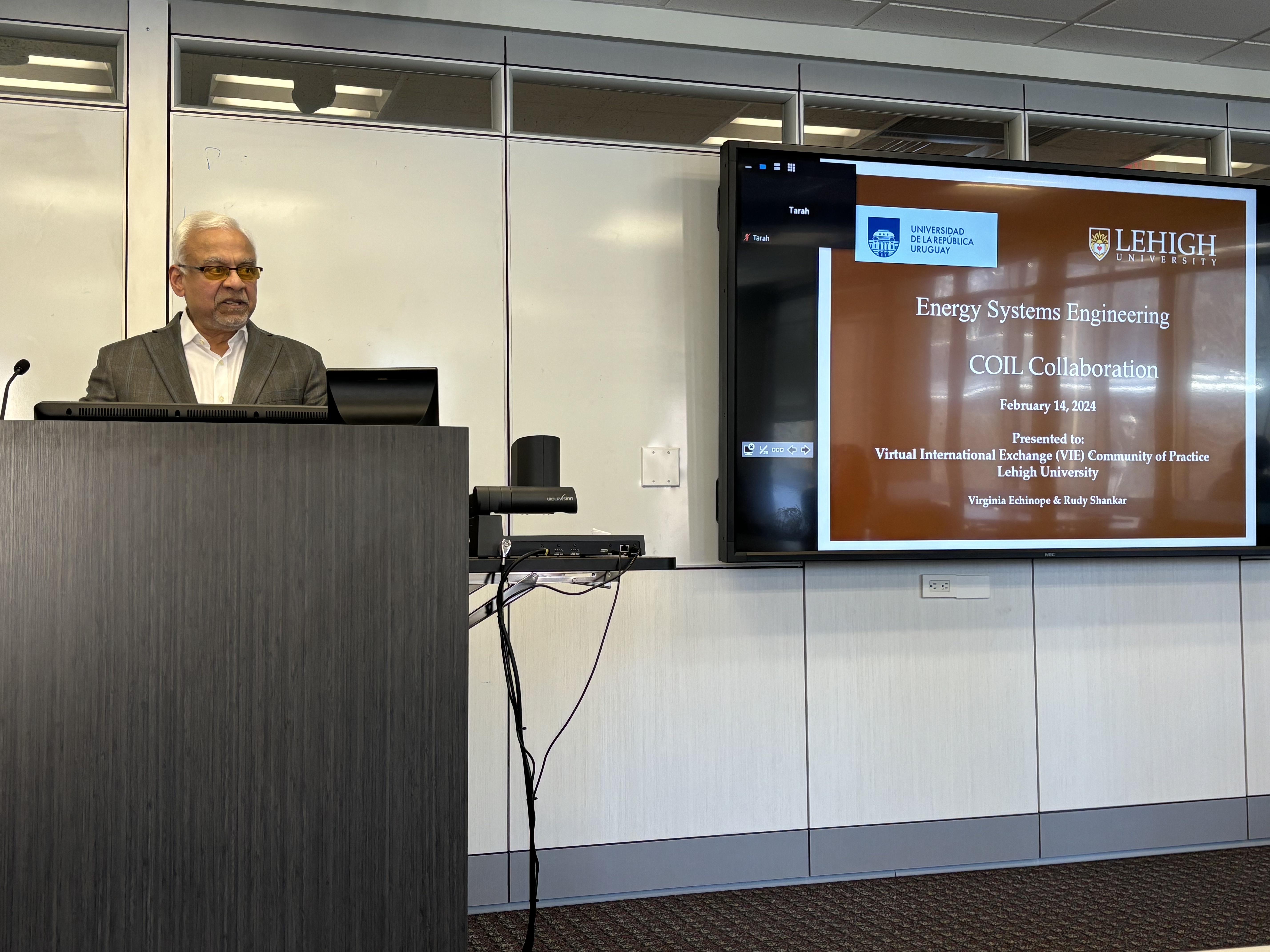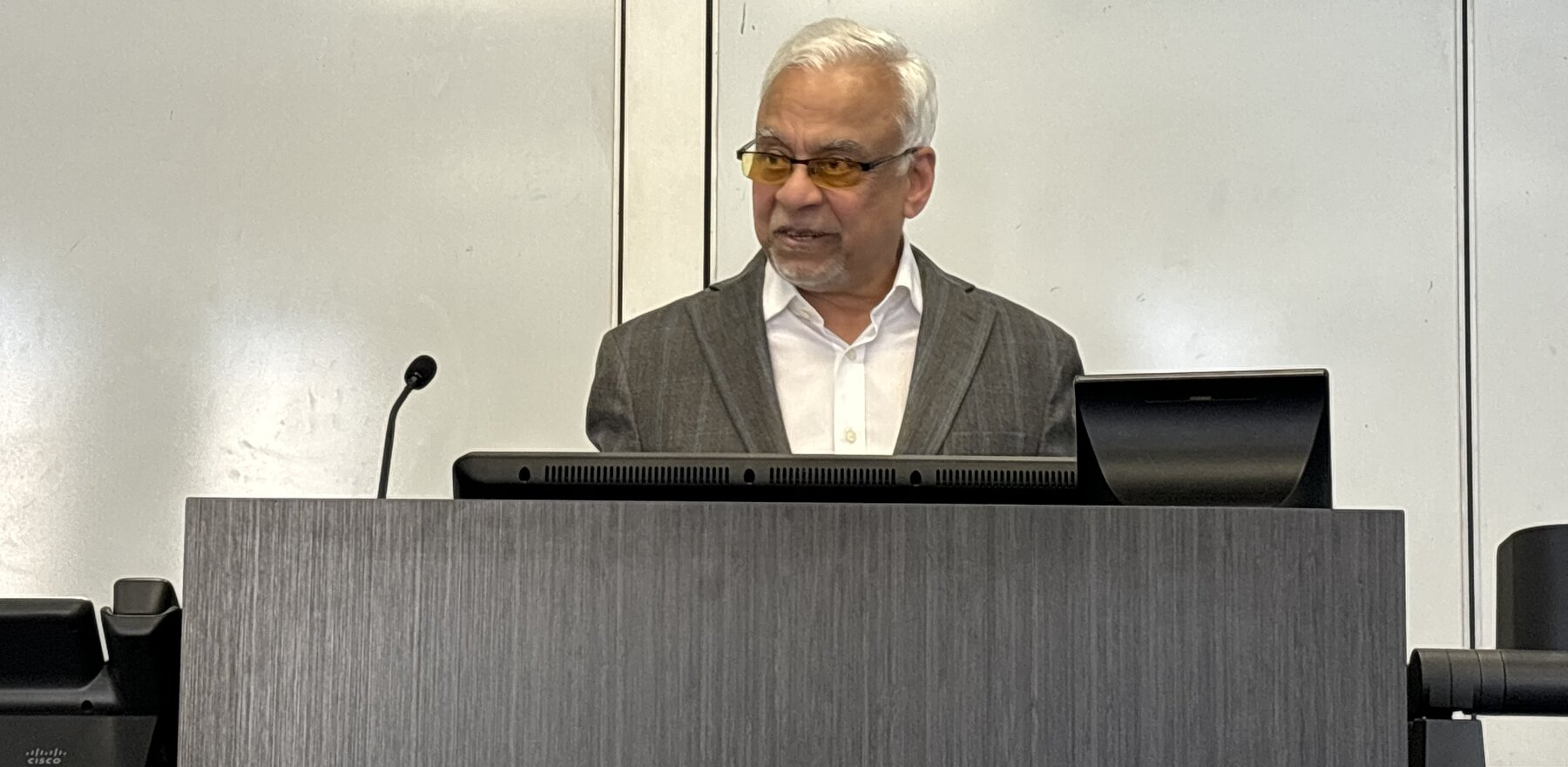Uruguay's remarkable success at sustainable living and reducing emissions was the subject of a Lehigh course taught through a COIL (Collaborative Online International Learning) program
Uruguay has emerged as a remarkable success story when it comes to sustainable living and reducing emissions without falling back into pre-industrial poverty.
After an ambitious countrywide transition to renewable power, the country has one of the world’s greenest energy grids, powered by 98% renewable energy, according to The New York Times. Fossil fuels have been replaced by biomass, solar, and wind parks, saving the nation more than $1 billion annually while also making it one of the world’s most sustainable countries.

That’s why Rudy Shankar, director of Lehigh University's Energy Systems Engineering program, partnered with University of the Republic (UDELAR) in Uruguay to create a collaborative learning experience, in which students from both institutions could work together and learn about global energy generation, despite the more than 5,000-mile distance between them.
“I know some will say it’s a small country, so big changes are easier there, but I don’t think it’s that straightforward,” Shankar said during a Feb. 14 presentation about the experience. “So having the opportunity for this collaboration with Uruguay about sustainability is great, because I think there could be a lot of lessons learned on both sides.”
VIE Community of Practice
The collaboration was done through Lehigh’s Virtual International Exchange (VIE) Community of Practice, an approach to creating student learning experiences that include international partner faculty and students collaborating on assignments, group work, and discussions using innovative technology to facilitate virtual international collaborations.
Through VIE, Shankar established a COIL (Collaborative Online International Learning), an international teaching and learning methodology in which two or more instructors in different countries virtually pair courses, including through collaborative assignments, group projects and shared lectures and discussions.
“If we have students in Uruguay do something similar to what our students are doing at Lehigh, why not have them all together virtually, as if they are all in one room?” said Shankar, who established the COIL in his graduate level course last spring. “I am very motivated by this, because I want all of us to hear about this change in Uruguay and learn from it.”

This marked Shankar’s first experience using VIE, which is a collaboration between the Lehigh’s Office of International Affairs (OIA) and the LTS Center for Innovation in Teaching and Learning (CITL) that develops and supports pedagogical innovation for the classroom, research, and experiential programs at Lehigh University.
Connecting Through Technology
Shankar’s counterpart at UDELAR in the COIL was Virginia Echinope, an assistant professor of engineering and electrical engineer with a broad background in wind and solar integration, energy planning, electricity market regulations, and electro-mobility. She was previously head of the Electric Energy Area in the Ministry of Energy & Mining in Uruguay.
One of the highlights of the COIL came when the students were challenged to create “zoomcasts,” during which student teams held a panel discussion about a project or topic, which was captured on video and uploaded to YouTube. The broadcasts not only captured the information and opinions of the teams, but also had other benefits for the students.
“They were honestly fun to do,” said Michael Perinotto, an energy systems engineering graduate student at Lehigh. “They helped me with things like public speaking and articulating my thoughts, and it was good to hear everyone’s opinions of what they took away from a project. It was just great to come together and create these zoomcasts.”
Growing Interest in VIE

The VIE Community of Practice can help faculty develop and leverage international partnerships to enhance teaching, learn how to use innovative technology for teaching, develop expertise in facilitating collaborative learning, engage students in interactive learning with students in other countries, and more.
This marked the second full year of Community of Practice outreach, and the interest in the program has only continued to grow, according to Mark Ouellette, Director of the International Center for Academic and Professional English (ICAPE).
“We're seeing it growing and growing, with increasing interest on campus for COIL and other Virtual International Exchange initiatives in the classroom,” Ouellette said. “I think it really demonstrates not just the growing interest, but also Lehigh’s dedication to teaching excellence and innovation and teaching in all areas, and in all disciplines.”
